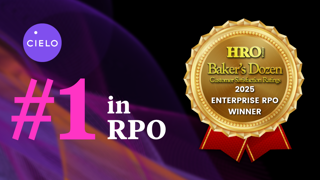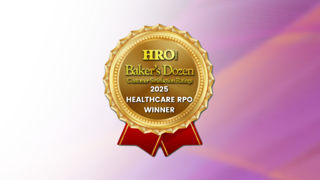During my time in the recruitment industry, I’ve operated in many different environments. I started out at a staffing agency, then owned and operated my own recruitment company for a while, and now I’m working in Recruitment Process Outsourcing (RPO). These experiences have given me the ability to share some of the major differences I’ve noticed in working at an RPO provider versus a staffing agency.
The staffing agency experience
At a staffing agency, you support multiple customers in identifying talent and making placements. You typically compete against other agencies and have just a small window of opportunity to source candidates with a specific skill set. The primary objective is to identify potential candidates, obtain their resumes, and submit them to the client. Recruiters are essentially the “middle man” in the talent acquisition process.
There’s a huge sales aspect for any staffing agency consultant working in a 360-degree role, which involves developing new business and servicing accounts, making placements that ultimately result in generating revenue. You’re expected to sell agency services to potential customers and sell jobs to relevant candidates. The position is typically commission-focused where the more hires (or placements) you make, the bigger your pay at the end of the month.
This ad hoc structure gives the agency recruiter the luxury of picking and choosing a vacancy they want to work on, with the option of walking away if it doesn’t look like it’s going to be successful.

What is talent acquisition what is recruitment learn the difference
Read moreThe RPO difference
When it comes to RPO, the experience is quite different from staffing agencies. The level of engagement and commitment from the client is much higher in RPO. Recruiters are dedicated to hiring for one organization. While a staffing agency recruiter can select which vacancies to fill at which companies, an RPO recruiter keeps working until the requisition is filled, regardless of how challenging it may be. Various metrics – all predefined in client agreements – are closely monitored, such as time to hire, cost per hire, source of hire, customer satisfaction, and retention levels.
This singular focus means RPO recruiters know the ins and outs of their client, which is nearly impossible for a staffing agency recruiter. By the time RPO recruiters submit candidates to clients for consideration, they’ve undergone a much more rigorous and specialized vetting process than what’s done at a staffing agency. This gives the RPO recruiter a stronger ability to promote the employer brand for the client, making sure the right message is going out at the right time in the marketplace.
Personally, having to focus less on sales and more on what I’m delivering to clients works great for me at Cielo. As rewarding as it can be working within an agency role where you’re constantly wearing multiple hats, I very much enjoy working in RPO. I’m seen more as a trusted advisor who’s consultative and able to deliver on my promises.
About the expert
Former Senior Recruitment Advisor, Cielo






